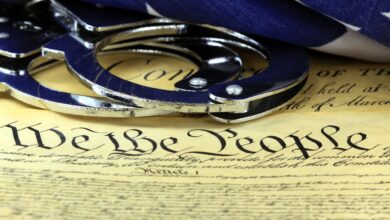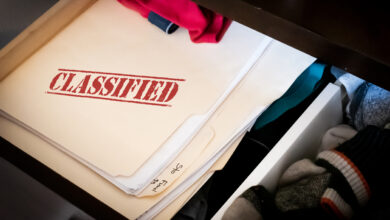Anybody who can utter the words “drain the swamp” and “the president can’t have a conflict of interest” in the same breath, without seeing the irony, is ethically challenged. Bigly.
That’s Trump.
Trump’s promise to drain the swamp sounded good to a lot of people, not just diehard Trump supporters. After all, there is widespread agreement that Washington D.C. is beset with a plague of political cronies, lobbyists, and greedy opportunists more devoted to their own financial interests than the public good.
No doubt this swamp needed a good draining.
But Trump has done just the opposite.
He and his family are awash with conflicts of interest. They have reaped financial benefits from his presidency. He has surrounded himself and filled the government with anti-government billionaires and special pleaders. And he has defied, and ultimately chased out, officials responsible for government ethics.
Start with Trump himself. He came to the office with such a massive portfolio of business interests that he could easily further enrich himself and his family through his presidential actions.
It is hard to imagine a more clear-cut example of a conflict of interest.
So, how has Trump handled it? He has refused to divest any of his interests, or even put them in a blind trust. Instead, he merely stepped back from active management of his companies, and put his two oldest sons in charge.
In other words, it’s still all in the family, and Trump still has a direct financial interest in every dollar the Trump companies earn during his presidency.
Walter Shaub, then the director of the Office of Government Ethics, captured the weightlessness of Trump’s minimal response perfectly: “Stepping back from running his business is meaningless from a conflict of interest perspective.”
In June, dozens of members of Congress sued Trump in federal court for profiting from business dealings with foreign governments. The suit alleges that Trump is enriching himself when foreign diplomats stay in Trump hotels, and that his companies are obtaining trademark approvals in foreign countries.
Is it any wonder that a mischievous multi-media artist projected the words “Pay Trump Bribes Here” on the façade of the Trump International Hotel, with an arrow pointing to the entrance?
Trump’s view of this obvious problem? No problem.
Why not? Because “the president can’t have a conflict of interest.”
Rubbish. Of course a president can have a conflict of interest. Trump is apparently referring to the fact that presidents are exempted from a single federal statute that prohibits executive branch employees from participating in matters in which they have a financial interest.
But being exempted from one federal statute doesn’t mean a president can’t have conflicts of interest. It just means that he can’t be prosecuted for them under that statute. Presidents are not above the law, and if a conflict of interest manifests itself as a bribe, a violation of the “Emoluments Clause” of the Constitution, or some other financial crime, they can be held accountable.
And then there’s first-daughter Ivanka. Bloomberg Politics has published a handy guide to Ivanka’s conflicts of interest, from which I have drawn in the discussion below.
Ivanka owns a business called “Ivanka Trump,” as well as a stake, with her father, in the Trump International Hotel in Washington D.C. She has business interests all over the world, including China.
When she was given an official White House job as a special adviser to the president, along with a West Wing office, she announced that she was transferring “day-to-day management” of her brand to her company’s president, and moving her brand’s assets into a trust managed by her husband’s family.
She did not divest her interests, and she retained not only ownership, but also the right to approve and veto deals.
On April 6, Ivanka sat next to China’s President Xi Jinping at a dinner hosted by her father at Mar-a-Lago. On that same day, the government of China approved three new trademarks that gave her the exclusive right to sell apparel, jewelry, handbags, shoes and activewear under the Ivanka Trump name to China’s 1.4 billion people.
So Ivanka really didn’t need the commercial boost she got from Kellyanne Conway, who used the White House briefing room to urge Fox News viewers to “Go buy Ivanka’s stuff!”
No, Ivanka is doing just fine on her own. The only boost she needs is being her father’s daughter. As reported by Newsweek, Ivanka’s business is prospering under her father’s presidency, especially in China. Chinese imports of her merchandise have surged with her father in the White House.
What a coincidence!
Could anybody be surprised, then, that the beleaguered Walter Shaub recently resigned his position as head of the Office of Government Ethics? In a model of understatement, Shaub observed that “in working with the current administration, it has become clear to me that we need improvements to the existing ethics program.”
Nor is it surprising that the Compliance Counsel in the fraud unit of the Justice Department’s Criminal Division resigned because she couldn’t tolerate the hypocrisy of demanding that corporations comply with ethical standards that weren’t being followed by Trump and his family.
Next, take a look at the people Trump has brought with him into the government, other than his family, that is.
He has surrounded himself with a rogue’s gallery of billionaire leveraged buyout specialists, junk bond kings, corporate raiders and vulture capitalists like Carl Icahn, Wilbur Ross, Stephen Schwarzman and Stephen Feinberg.
Add in New York real estate developers, like Steven Roth and Richard LeFrak, and the picture emerges of an inner circle created by Trump in his own image.
Trump also stuffed his formal cabinet full of billionaires and multi-millionaires who, in addition to being hostile to the agencies they have been chosen to lead, have much to gain by steering the government into the “right” policies.
One of his first appointments was Andrew Puzder, an anti-labor, anti-regulation, anti-minimum wage fast food billionaire. Puzder’s claim to fame was his observation that automation is a welcome development because machines are “always polite, they always upsell, they never take a vacation, they never show up late, there’s never a slip-and-fall or an age, sex, or race discrimination case.”
For what cabinet post? Secretary of Labor, of course.
Puzder didn’t even last a round in the confirmation ring. His anti-labor views cost him any support from Democrats. Republicans turned their backs on him when they heard allegations of spousal abuse and employment of undocumented immigrants. Even the National Review and Breitbart opposed him. Puzder was forced to withdraw.
Then there are the ones who made it through.
Tom Price had a sleazy history of buying stock in pharmaceutical companies just before co-sponsoring legislation that would raise the value of those stocks. Trump appointed him as Secretary of the Department of Health and Human Services, the agency that regulates the health care industry in ways that profoundly impact the bottom line of pharmaceutical companies.
And then there’s Scott Pruitt, who was famous for working with oil and gas companies to gut environmental regulations. As Oklahoma’s attorney general, Pruitt repeatedly sued the Environmental Protection Agency for doing what it was created to do, regulate mercury, smog and other forms of pollution. Pruitt was Trump’s choice to head – wait for it – the Environmental Protection Agency.
I could go on about the cabinet (Wilbur Ross, Betsy DeVos, etc.), but it’s not possible to cram a book’s worth of material into a column.
Suffice it to say that Trump hasn’t drained the swamp.
He’s brought it into the White House.
The next president is going to need a fumigator.





